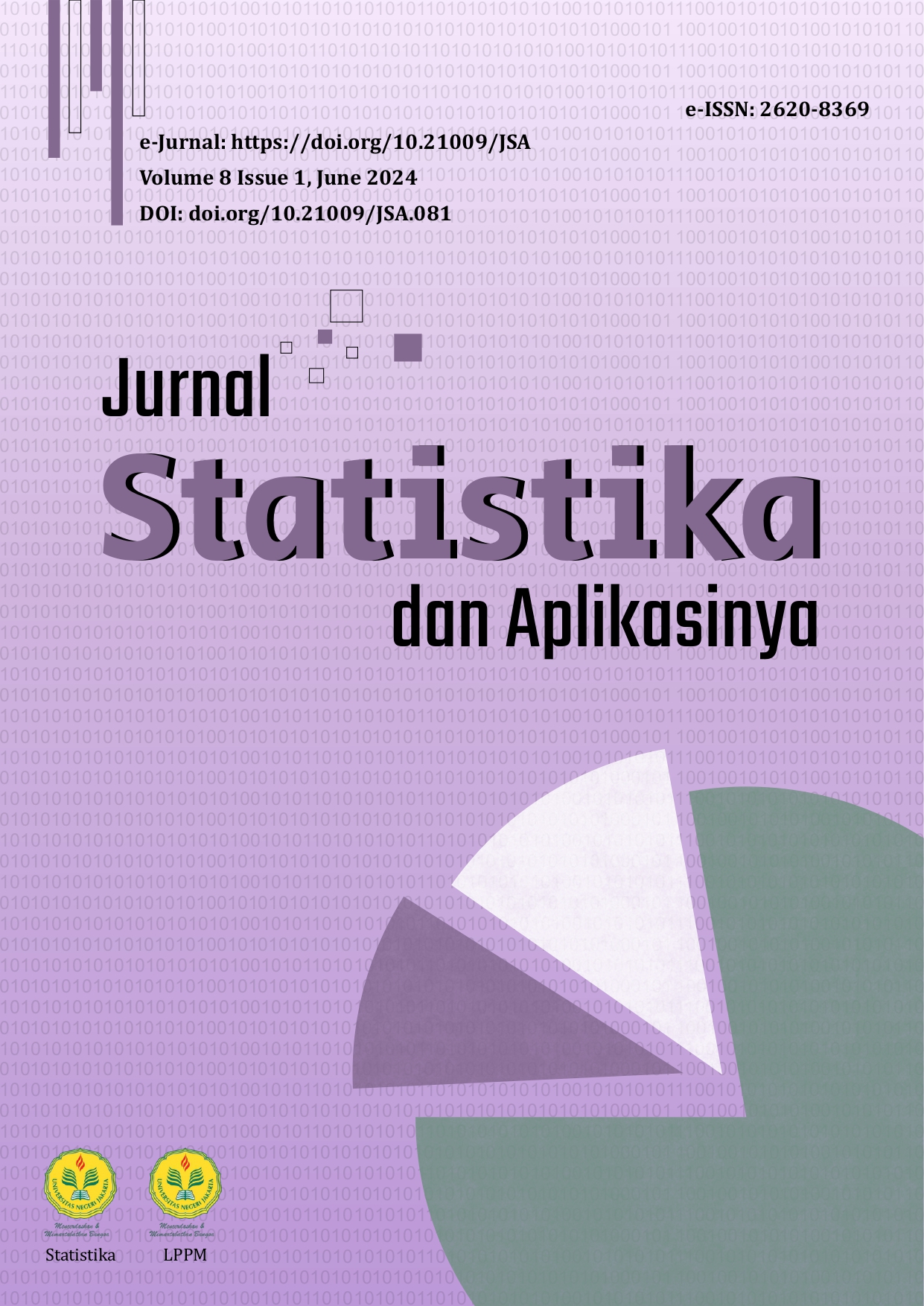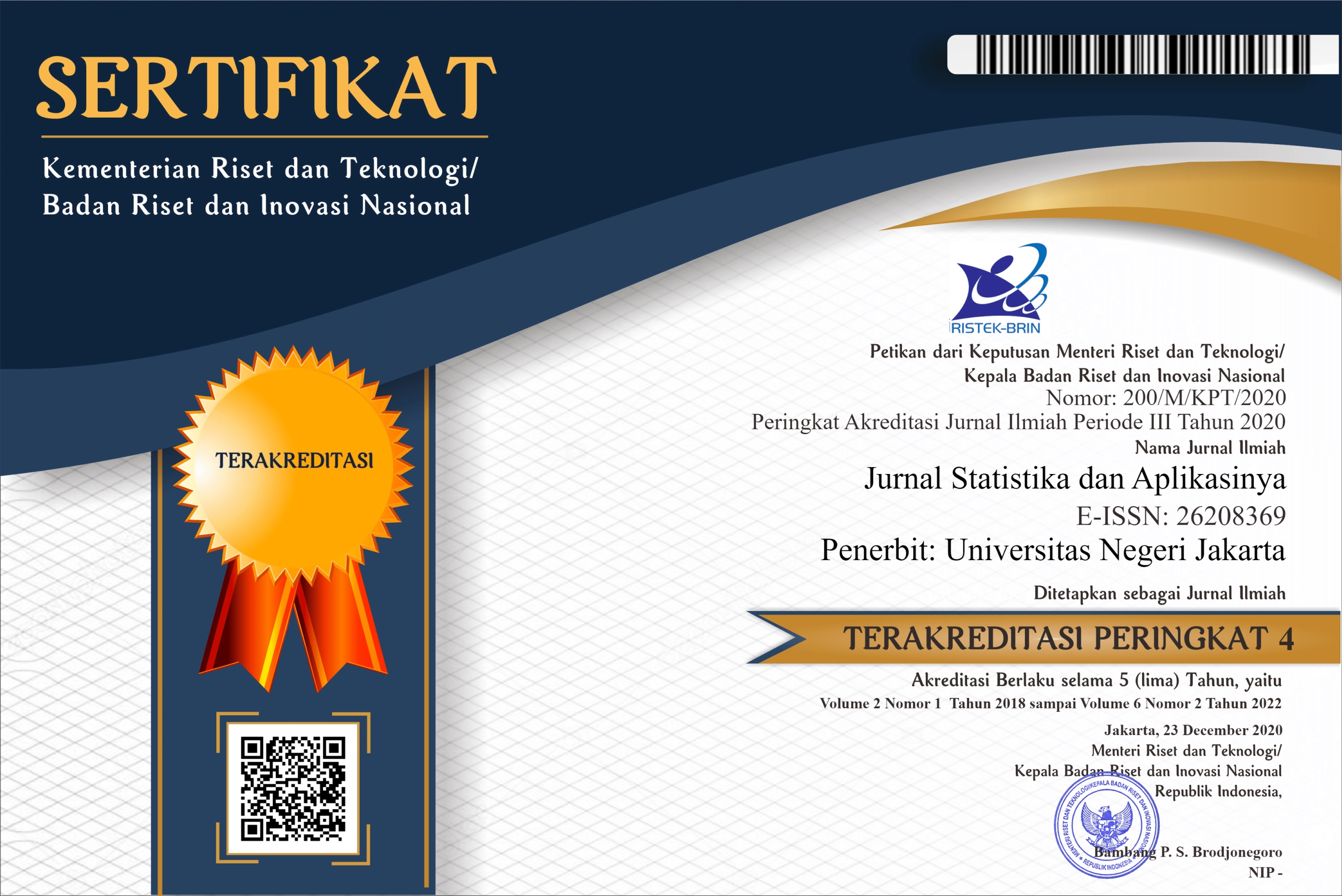Panel Data Regression Modelling Factors Affecting Participation in Indonesia's National Health Insurance Contribution Assistance Program
DOI:
https://doi.org/10.21009/JSA.08106Keywords:
Panel Data Regression, National Health Insurance, Random Effects ModelAbstract
National Health Insurance (JKN) is a health insurance system that provides health protection to individuals who have paid premiums (non-PBI) or whose premiums are paid by the government (PBI). JKN participation in Indonesia from 2018 to 2021 has consistently increased, particularly for JKN PBI, yet the program has not achieved the target of 100% membership coverage globally or nationally. A deeper understanding of the factors influencing JKN is crucial to enhance the program's effectiveness and formulate targeted policies. This study aims to analyze the factors affecting the participation of JKN PBI annually in Indonesia. The data used in this study cover the period from 2018 to 2021 and involve 34 provinces in Indonesia, thus forming a panel data structure. A panel data regression model is employed to identify the factors influencing JKN PBI participation. The predictor variables analyzed include income levels, access to health facilities, employed population, and education levels. The results indicate that the most suitable model for determining the factors influencing participation in the National Health Insurance PBI with a significance level of is the Random Effect Model (REM). The simultaneous and partial tests show that the variables of the employed population and education levels significantly impact JKN PBI participation. Therefore, the REM is considered appropriate and effective in explaining the factors influencing participation in the JKN PBI program. This study provides insights that can help in formulating more targeted policies to enhance the effectiveness of the JKN program in Indonesia.






